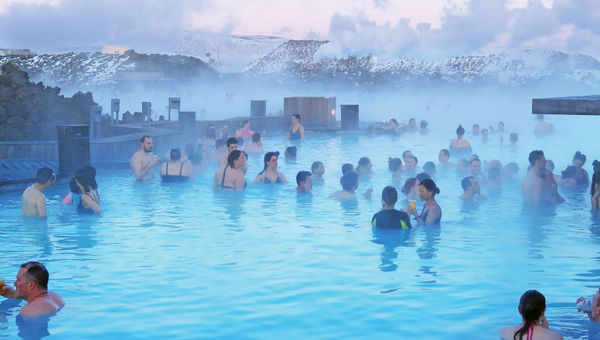As travelers become more adventurous, tour operators in 2019 expect to see more destinations that were once considered off the beaten path become mainstream, a trend that will create new challenges for sustainability and overtourism.
The merging lines suggest it will also become harder and harder in coming years for tour operators to offer the unique adventures travelers increasingly crave.
Indeed, the most recent biennial survey of members of the USTOA shows a growing crossover between the top 10 hot destinations for 2019 and the top 10 off-the-beaten-path destinations.
Iceland, Vietnam, Colombia, Cambodia and Portugal made both lists, with Croatia, Bhutan, Bolivia, Myanmar and Ethiopia rounding out the off-the-beaten-path top 10.
When it comes to the top 10 overall, Italy tops the list for 2019, followed by Iceland, Japan, Vietnam, Australia, France, Spain, Colombia, Cambodia and Portugal.
With growing concern about overtourism, the increasing desire by travelers to the see both the popular and the far-flung is forcing tour operators to confront the impact of travel.
The good news is that most agree that the trend toward smaller groups and private tours focusing on unique local experiences makes it a bit easier to mitigate the impact.
For example, Jeremy Palmer, senior vice president of Tauck Land Journeys, said the company has made a number of efforts to support balanced tourism.

The Blue Lagoon geothermal spa is a popular tourist destination in Iceland.
"We tour some of the world's most iconic attractions either before or after their normal operating hours," he said. "For example, our guests tour the Sistine Chapel and Vatican Museums, the Louvre and St. Mark's Basilica in Venice after hours. At Claude Monet's home and gardens in Giverny [in France], our guests enjoy a tour before the site opens to regular visitors."
Palmer said Tauck prides itself on itineraries and exclusive access to avoid the crowds. He said two of the fastest-growing segments of the business are small-ship cruises and small-group departures of land journeys, "where the more modest numbers of travelers naturally have a lesser effect on the places they're visiting."
Palmer added: "We also offer pricing incentives to encourage more of our guests to travel during off-peak periods, when popular destinations can more easily accommodate visitors. Finally, and at a very fundamental level, the kind of group travel we've practiced for 90-plus years is inherently less impactful; a single motorcoach carrying 40 Tauck guests has far less effect on traffic congestion and air quality (and requires just a fraction of the parking space) compared with 20 cars carrying two people per vehicle."
USTOA president and CEO Terry Dale said he expects overtourism to become an increasing focus of the group.
"We want to avoid a situation where you have people where tourism adversely affects their quality of life," he said. "We need to find the right balance. Nothing hurts me more than to see local residents who think our industry has damaged their quality of life."
Scott Wiseman, president of Travel Impressions, said leaving a "zero footprint" is a goal companies have been working to achieve for a long time, but now is the time to "take it to the next level."
Potential solutions range from limiting times people can be on a beach to working with local communities and sharing best practices among members, USTOA board members said at a recent meeting.
One company taking social responsibility in the travel space to the next level is G Adventures, which in November launched an initiative that goes beyond traditional sustainability programs to child protection.
With tour operators increasingly going into more remote destinations, the company developed an industry-first set of guidelines to help travel companies and clients make sure their activities are child-safe and child-friendly. Guidelines include not handing out gifts to children or taking their pictures without explicit permission from a guardian and avoiding activities like volunteering in schools and orphanages unless travelers are trained specialists.
"The message is simple," said Jamie Sweeting, vice president of social enterprise and responsible travel at G Adventures. "If you wouldn't post pictures of other people's children without their parents' consent, if you wouldn't interrupt a teacher's school class or you wouldn't open up a suitcase full of gifts for unknown kids on a street back at home, don't do it anywhere else. When we know better, we'll do better."
The USTOA survey found that 2019 promises to be another banner year for tour operators.
Members said their business grew by nearly 26% over the past two years, to nearly $19 billion, and a majority forecasted continued growth in the year ahead.